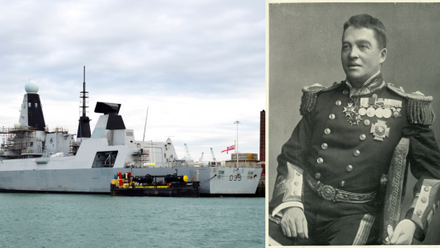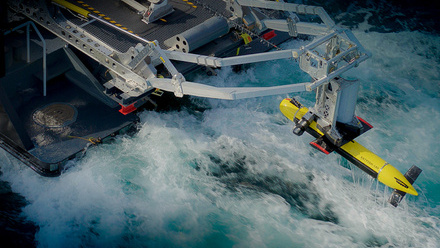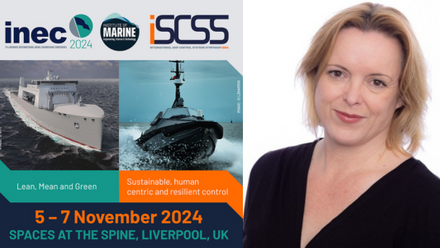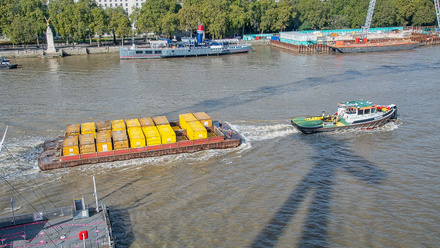Titan tragedy investigation set to change industry
The Titan submersible tragedy gripped the world, and brought intense focus on deep-sea exploration. An investigation into how the incident happened is now underway – but it is not yet clear how it will affect industry, says the co-chair of the IMarEST Human Element Working Group.
It is now three months since the world was gripped by an unfolding tragedy in the North Atlantic. For most of us, the search for the lost Titan submersible was a terrifying reminder of just how hostile and unforgiving the ocean can be.
For those in the tight-knit deep-sea exploration community, however, the disaster was not unexpected. Even as search and rescue crews raised hopes of underwater knocking, which might have signalled the five passengers sealed inside were still alive, those familiar with OceanGate’s vessel were more fatalistic. The catastrophic implosion of the submersible’s filament-wound carbon fibre hull had long been considered a tragedy in waiting.
As has been widely noted, OceanGate’s CEO Stockton Rush – who died in the incident – saw himself in the mould of a tech disruptor, a maverick who would break rules to accelerate innovation in deep ocean exploration.
“If you’re not breaking things, you’re not innovating,” he declared at the 2022 GeekWire Summit. It is the kind of mindset that has powered the digital revolution, but in the crushing pressures of the abyssal zone – the waters from 10,000 to 20,000 feet – there is no margin for a “fail fast and iterate” innovation cycle.
Equipment that ventures this deep is tested to the limit – and beyond – and redundancy after redundancy is built in, with single points of failure eliminated where possible and every critical step in the process checked by an independent body. This approach was deemed by Stockton Rush to be “anathema to rapid innovation”. Indeed, he went out of his way to skirt an independent certification or classification process.
“OceanGate set up the headquarters in countries where regulation was not required, stating they were operating in unregulated international waters, and that their passengers were in fact crew and knew the risks,” said Dr Marco Cianni, an elected fellow of the Royal Institution of Naval Architects (RINA). “These loopholes need to be closed to prevent the unnecessary loss of human life and to prevent the vast expense of search, rescue and recovery operations when they inevitably fail, which could draw essential resources from legitimate certified vessels.”
He said the tragedy underlined the important role that classification societies play in validating new technologies. “Where human life is concerned, certification and classification are paramount,” said Dr Cianni, who is also chief technology officer at AI-focused company Raptohna.
He pointed out that “fail fast and iterate” can be a useful concept to drive innovation in the maritime industries – but it has to be applied by professional engineers using generous safety factors in the design, and executed hand in hand with classification societies.
“Disruptive innovation is not an excuse to cut corners,” said Dr Cianni. “Professional engineering techniques are more than capable of producing a reliable, innovative submersible or submarine and there are many examples of 30 foot long carbon unmanned underwater vehicles (UUV) with over 6,000 operational hours at 6,000 meters – that’s hundreds of cycles without failure.”
There is now a full investigation underway, and it is important not to pre-judge what lessons will be learned as a result.
“What seems to be emerging is that decisions taken with respect to technical risks will be examined in some detail, including the pressures and perspectives of the decision-makers as well as what controls were in place,” said Will Tutton, co-chair of the IMarEST Human Element Working Group.
“What we should avoid at this time, and to give the investigators space to come to their own conclusions, is to focus on human error or other simplistic explanations. Consideration of the complex systemic influences on the incident will be needed if we are to understand such an incident in such a hostile and difficult environment.”
Tutton said it will be interesting to see if there are any regulatory changes around certification and whether those changes will be informed by the recently endorsed IMO human element checklist. “The checklist is intended to support senior level decisions around operational and technical policy and is being adopted by maritime organisations at present,” he said.
And what of the so-called ‘Titanic industry’? The doomed liner’s grip on the public imagination remains steadfast even after more than 100 years, but the OceanGate disaster is a warning that visits to the wreck, where iron-eating bacteria is accelerating its degradation, may cost visitors their lives, not just hundreds of thousands of dollars.
“Public trust in companies operating submersibles has been badly damaged,” said Dr Cianni. “This could set the industry back 10 years and impact legitimate business already operating in the underwater tourism industry.”






